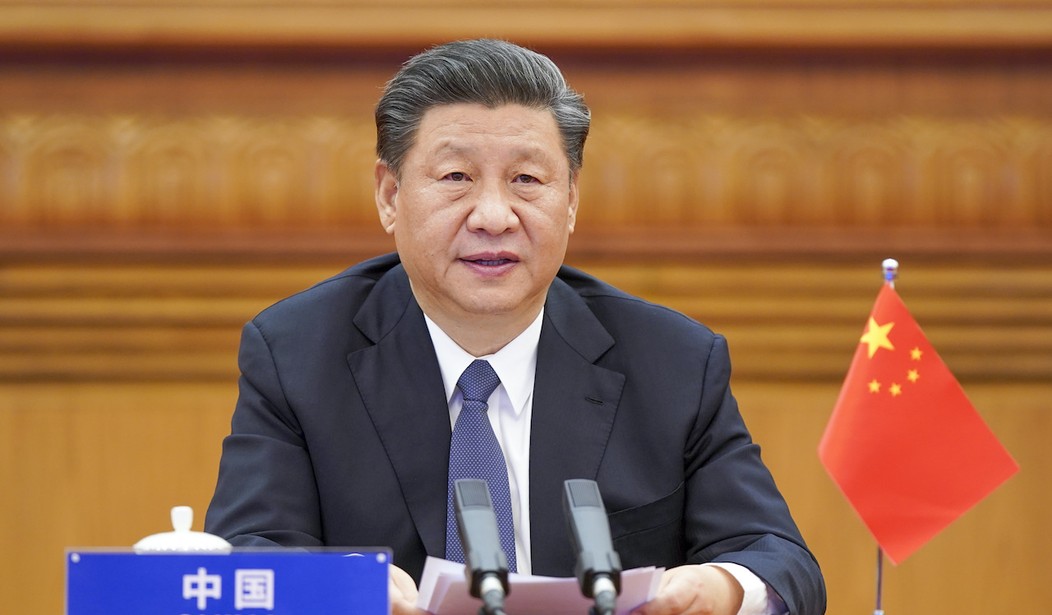On February 5, three conservative writers – Sohrab Ahmari, Patrick Deneen and Gladden Pappin – penned a guest essay in The New York Times entitled “Hawks Are Standing in the Way of a New Republican Party.”
The authors make a number of reasonable points about the costs of foreign interventionism. Their arguments will likely resonate with an American public fed up with two decades of Middle East entanglements.
At a couple of junctures, though, Ahmari, Deneen, and Pappin strike a disturbingly conciliatory tone towards global tyrannies – not just Russia, but China as well.
The authors argue that we should “find areas of cooperation, exchange and shared interests” with the People’s Republic of China, while “seeking to avoid any future wars and instead communicating with mutual respect for a civilizational equal.”
The essay does not make clear what these “areas of cooperation, exchange, and shared interests” are supposed to be. Furthermore, it is extremely unsettling to hear American conservatives describe a communist dictatorship as a “civilizational equal” worthy of “mutual respect.”
The People’s Republic of China is not by any means a nation whose customs we are bound to respect. And while most of us are passingly familiar with the crimes of the Chinese Communist Party, a brief refresher course may be in order for Messrs. Ahmari, Deneen, and Pappin.
China is a nation that has inflicted on its people, by means of a social credit system, a vast surveillance apparatus that controls the minutiae of citizens’ everyday lives to a degree hitherto unconceived by even the most sophisticated tyranny.
It is a nation in which dissenters are ruthlessly crushed, in which rights such as free speech, free religion, due process, and gun ownership are nonexistent, in which the people live subject to the caprice, brutality, and arbitrary lechery of their leaders – to the point where an athlete who publicly accuses a Party official of sexual assault can disappear for months, reappearing only to recant her allegation under clear duress.
Recommended
It is a nation which harvests the organs of Falun Gong practitioners, one which subjects ethnic minorities in Xinjiang to reeducation and forced sterilization, and one which has never shown any hesitance about its own hawkish inclinations, as the people of Tibet, Hong Kong, and Taiwan can all attest.
The pandemic-era lockdowns and mandates which we have all experienced firsthand represent only a shadow of daily life in China – and, indeed, these measures were deliberately exported worldwide by the CCP. “The monsters that menace us don’t lurk abroad,” conclude Ahmari, Deneen, and Pappin… except, sometimes, they do.
There is simply no moral relativism to be found here. China is not, by any measure, a civilization equal to the United States. It is worthy not of respect but of the harshest condemnation, and any vision of conservatism that denies this is one that we should wholeheartedly reject.
One may reasonably argue for a more restrained foreign policy. One cannot, however, deny that there is a very real clash of civilizations between the United States and China, that the values of the two nations are diametrically opposed, and that ours are superior to theirs.
At other points in their essay, Ahmari, Deneen, and Pappin hint at a desire for ideological realignment that extends beyond a mere reconsideration of hawkishness, and veers sharply into the realm of domestic policy.
The authors take aim at “a ruthless market ideology that puts short-term shareholder gains and the whims of big finance above the demands of the national community (and) a virulent cultural libertinism that dissolves bonds of family and tradition.”
Such words could have come directly from the mouth of a CCP propagandist. Whether intentionally or not, Ahmari, Deneen, and Pappin are putting forward a collectivist vision which not only advocates for a foreign policy favorable to China, but for the import of its economic and social policy.
The Western system of “market-centric economics” decried by the authors has in fact been the greatest engine of human prosperity in history. Those who downplay the importance of material well-being are invited to live devoid of modern comforts for a single day. Recent economic disruptions have given us a faint glimpse of what that might look like. Man does not live by bread alone, it is true, but no starving man doubts the value of bread.
In fact, the authors’ attack on shareholder profits sounds like nothing so much as the “stakeholder capitalism” proposed by World Economic Forum chair Klaus Schwab, as part of the Great Reset.
It is unclear what Ahmari, Deneen, and Pappin mean by their condemnation of “cultural libertinism.” Historically, Americans have generally had the right to make suboptimal personal choices – a point recognized by conservatives who oppose vaccine mandates even for the elderly and vulnerable.
Over the past two years, we have been subject to a social order in which personal and economic liberty were disregarded in the name of the supposed collective good. Conservatives have rightfully loathed it. Those who argue for collectivism in their own politics, however, will have no ideological basis to oppose vaccine mandates and business closures.
Conservatives cheering on the Trucker’s Convoy in Ottawa should also keep in mind that Xi Jinping would be a lot less tolerant of such mass civil disobedience in his capital than Justin Trudeau has been.
Many of the points made by Ahmari, Deneen, and Pappin would be unanimously decried by conservatives if they were espoused by a prominent Democrat. They should not be allowed to sneak past our intellectual defenses repackaged as a new form of conservatism.
The essay’s authors, particularly Ahmari and Deneen, have elsewhere expressed antipathy towards classical liberalism. If this is their true contention, then they should make it directly rather than obliquely. For our part, we should be skeptical of such ideological smuggling. Nor should we overcorrect for the mistakes of the War on Terror by running too quickly in the opposite direction.

























Join the conversation as a VIP Member